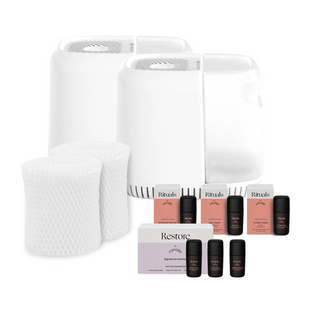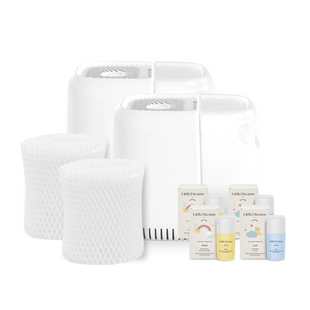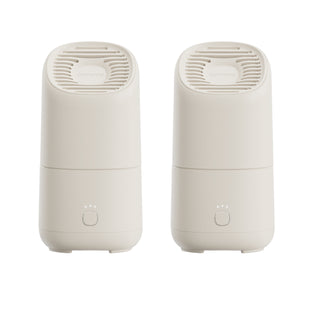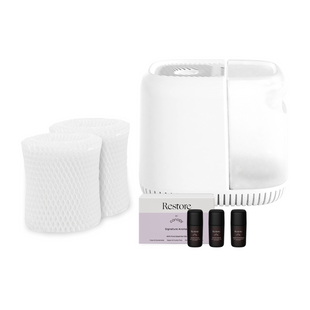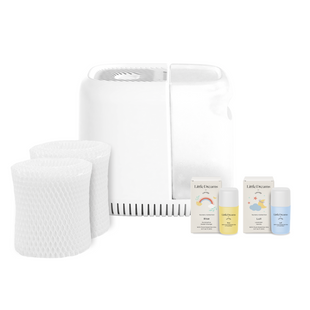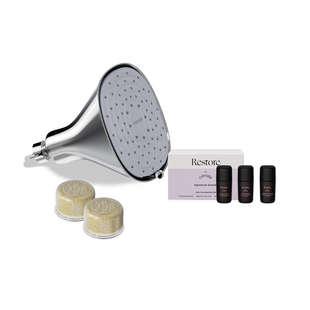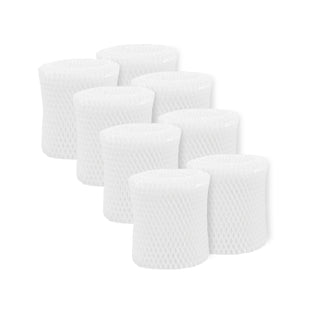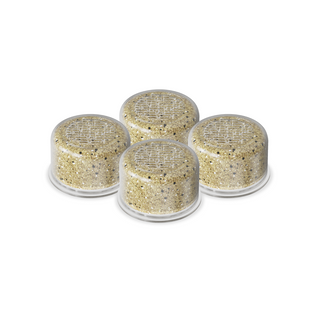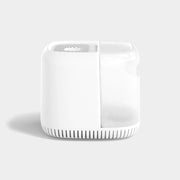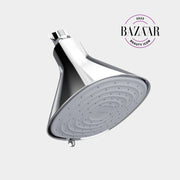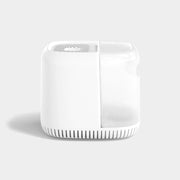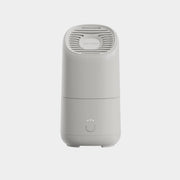The cold strikes, again! You have a stuffy nose, a sore throat, persistent cough, and a case of chest congestion that just won’t quit. SOS.
How do you get rid of congestion, especially chest congestion that interferes with your breathing and, frankly, your ability to function?
Luckily, there are many home remedies for congestion that are scientifically proven to improve your symptoms and get you back to full health at warp speed.
What Causes Chest Congestion?
Chest congestion is the colloquial term used for the build-up of mucus or fluid in the lungs. You may have chest congestion if you are experiencing any of the following symptoms:
- Your chest feels heavy or tight
- You experience pain when you take a deep breath
- You have a cough that may produce mucus
- You have slight difficulty breathing or you feel a shortness of breath
- You wheeze when taking normal breaths
- You are fatigued even with mild exertion
Generally, chest congestion is a byproduct of the common cold or the flu. Bacteria or viral infections trigger an immune response, which can cause a fluid build-up in the lungs as your body works overtime to expel the foreign invader.
Chest congestion is not always a symptom of the flu; in fact, there are many causes of chest congestion that are relatively common including: bronchitis, allergies, and pneumonia.
Other times, chest congestion could be a symptom of a more severe health condition. In the case of chronic chest congestion or prolonged chest congestion, consult with a medical professional.
The Common Cold or the Flu

Chest congestion is often caused by the common cold or the flu virus. Additional symptoms of a cold or the flu are: stuffy nose, sore throat, coughing, sneezing, body aches, a fever, or chills. If your chest congestion is accompanied by any of the aforementioned symptoms, it is likely a result of a cold or the flu.
Bronchitis
There are two types of bronchitis: acute bronchitis and chronic bronchitis, both of which cause inflammation of the bronchial tubes (those super important tunnels through which air flows through the nose, the mouth, and to the lungs).
Acute bronchitis is the result of a viral infection, and it only lasts a few weeks. Chronic bronchitis, on the other hand, is recurrent inflammation of the bronchial tubes usually as a result of smoking. Both acute and chronic bronchitis produce symptoms of chest congestion, wheezing, a cough accompanied by mucus, and shortness of breath.
Allergies
Common household and seasonal allergens can cause an array of frustrating symptoms including itchy eyes, dry throat, chronic cough, sneezing, stuffy nose, and chest congestion. Excess mucus buildup in the nasal cavity and throat can drip down into the lungs resulting in a buildup of fluid and uncomfortable chest congestion.
Exacerbated allergy symptoms may also trigger severe chest congestion in asthmatics accompanied by nasal congestion and postnasal drip.
Pneumonia
Pneumonia generally starts as a cold or bacterial infection, which escalates into a viral infection of the lungs causing inflammation and a buildup of fluid. Pneumonia often triggers flu-like symptoms with an additional symptom of chest congestion accompanied by mucus or pus.
Do Home Remedies for Chest Congestion Work?
Home remedies are an effective method for treating or reducing the symptoms of mild chest congestion related to colds, the flu, and allergies. If you are experiencing chest congestion as a result of pneumonia, bronchitis, or other more severe illnesses or infections, you should contact your doctor immediately.
Home remedies should not be used as a replacement to medical doctors. If your chest congestion gets progressively worse or lasts for longer than 4 days, you should speak with your doctor as soon as possible.
In addition, if you experience any of the following symptoms, seek medical help immediately:
- Shortness of breath or difficulty breathing
- Chest pain or chest pressure that does not go away from rest
- Persistent vomiting
- Cold or flu-like symptoms that last longer than 10 days
- A prolonged fever over 101 degrees Fahrenheit
- If you cough up yellow or green colored mucus, which can indicate infection
- Fainting or light-headedness
Home Remedies for Chest Congestion
There is no shortage of home remedies for chest congestion on the Internet. So, what actually works?
We gathered the most effective home remedies for congestion as backed by science. Each of the following home remedies include reference to a scientific study with incredibly promising results.
A Humidifier
Yale professor Akiko Iwasaki led a study published in the 2020 Annual Review of Virology during which he studied the effects of humidity on regulating the body’s immune response to viral infection.
Professor Iwasaki identified three major problems associated with low humidity, which include: improved survival rate of airborne pathogens, reduced function of cilia (the hairlike structures we mentioned earlier), and weakened immune response.
Increased levels of humidity by way of a humidifier can reduce the survival rate of airborne pathogens and lubricate cilia for improved function. Reduced survival rate of pathogens reduces the chances of contracting viruses, and improved cilia function can help your body effectively expel foreign particles to keep you squeaky clean!
Optimal home humidity levels as recommended by the EPA are between 40% and 60%. Using a humidifier will help you regulate humidity levels to keep your home healthy and safe all year long.
Essential Oils

Essential oils are concentrated plant extracts captured through the process of distillation or mechanical pressing. Essential oils can be used through diffusion or by topical application for aromatherapy benefits.
A 2016 study published in the Evidence Based Complementary Alternative Medicine journal revealed that an essential oil blend containing ravensara, frankincense, and sandalwood effectively alleviated symptoms of 54 patients with perennial allergic rhinitis (PAR). The essential oil blend alleviated subjective symptoms, reduced fatigue, and improved quality of life specific to PAR.
Peppermint, eucalyptus, and camphor essential oils are the most commonly used essential oils for decongestion. You can diffuse these essential oils in an essential oil diffuser or with Canopy’s built-in aroma diffuser.
In addition, you can apply peppermint, eucalyptus, or camphor essential oils topically with a carrier oil. The general rule of thumb for applying essential oils topically is to use 12 drops of carrier oil for every 2 drops of essential oil. Make sure to do a patch test on a small area of your skin before applying to the rest of your body.
Vapor Rub
In the same vein, you can use a store-bought vapor rub to effectively soothe chest congestion. A vapor rub is a medicated ointment that you apply on your throat and chest to soothe congestion. Vapor rubs often feature camphor, eucalyptus, or menthol oils for their soothing properties.
In a 2010 study published in Pediatrics, researchers analyzed vapor rubs as a treatment method on 138 children ages 2 to 11. The results of the study proved that a vapor rub effectively improved symptoms of congestion, cough, and sleep difficulty.
The most popular vapor rubs are Vicks VapoRub, Mentholatum Original Ointment, Maty's All Natural Baby Chest Rub, and Tiger Balm Pain Relieving Ointment. Most vapor rubs can be found at your local drug store or on Amazon.
Honey
Just a spoonful of honey makes the congestion go away… Or at least improve the symptoms of chest congestion. Honey contains antibacterial and antiviral properties that effectively fight infection.
In fact, a 2007 study from the archives of Pediatrics and Adolescence Magazine studied the effects of buckwheat honey on 105 children participants between 2 and 18 years old. When compared to no treatment, use of the honey-flavored cough suppressant dextromethorphan, and buckwheat honey, buckwheat honey proved most effective for treating the symptoms of cough and congestion.
Note: honey is not meant for children under the age of one. If your infant is suffering from chest congestion, call your pediatrician immediately.



